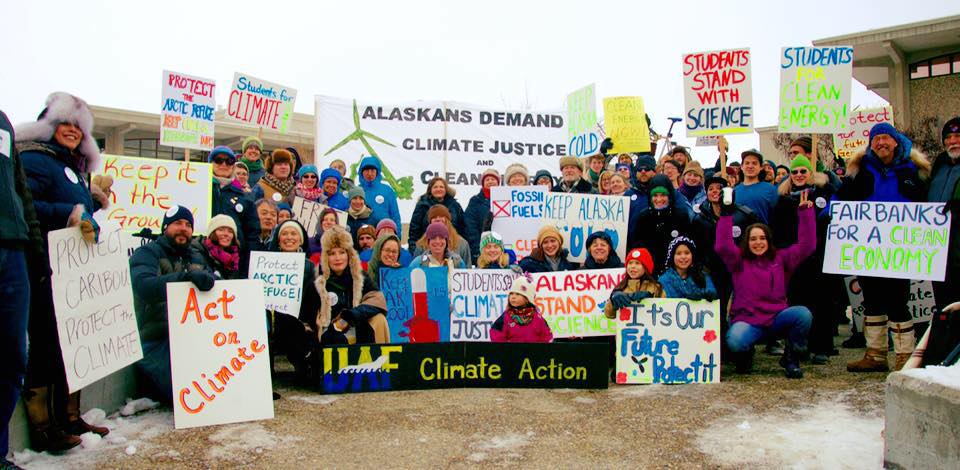Alaskan Episcopalians are putting $5,000 in UTO grants to work on issues surrounding climate change. From Episcopal News Service:
The Episcopal Diocese of Alaska is working with a grassroots group called Fairbanks Climate Action Coalition to educate communities about renewable power sources and to empower native Alaskans and other residents to speak out on issues related to climate change.
The Episcopal Church’s United Thank Offering, or UTO, program awarded the diocese a $5,000 grant this year to support the coalition and its efforts, which still are gaining momentum three years after a small group of activists began collaborating on these issues.
Bishop Mark Lattime has planned related programs and visits during the House of Bishops’ meeting in Fairbanks, beginning tomorrow:
As host, Lattime is emphasizing the themes of creation care and racial justice for indigenous people. Those two themes are closely related, he said.
“My vision of this was to be honoring our Native folks and their concerns for the care of creation. They’re the ones – folks who live closest to the land, folks who have depended on a subsistence lifestyle for centuries – those are the ones who are affected by climate change most significantly,” he said.
Lattime spoke about the challenges and joys of ministry in Alaska in a series of videos here.
The bishops, who meet from Sept. 21 to 27, will spend a day visiting Native villages in the Interior. They will listen to villagers’ stories and then bless the land, water and other natural resources.
The House of Bishops meeting also will feature a presentation on indigenous Alaskan culture. One of the presenters will be Princess Johnson, a Fairbanks resident of Gwich’in heritage who was one of the founders of Fairbanks Climate Action Coalition. She also was a member of the Episcopal Church’s delegation that traveled to Paris in December 2015 for the 2015 United Nations Climate Change Conference, also known as COP21.
The Coalition works to bring to public attention Alaska’s geographic and political challenges when it comes to environmental efforts.
The Fairbanks Climate Action Coalition has found success in organizing trips to Juneau for members. Last year, it cobbled together enough donations to fly a 14-person delegation more than 600 miles to the state capital to meet with lawmakers and voice their opposition to a state resolution supporting opening the Arctic National Wildlife Refuge to oil drilling.
Johnson said such face-to-face interaction is effective in conveying to lawmakers how environmental issues have a direct impact on indigenous people’s ability to live off the land and protect their way of life. The coalition hopes to be able to organize more such trips in the future.
The coalition and the diocese also are careful not to vilify the oil industry. The economic reality is that the oil industry dominates the state economy. The coalition instead talks of a “just transition” toward a new economic model and away from the use of fossil fuels that is making climate change worse.
Image from Fairbanks Climate Action Coalition’s Facebook page.

